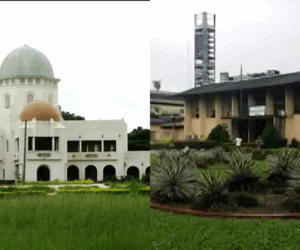
Many Nigerians who relocate adjust routines, spending, and social habits as they adapt to new costs, services, and cultural expectations. Some changes are practical, such as learning to shop differently or manage different transport systems.
Others are behavioural, like valuing time over appearances or prioritising long-term savings. These habits help newcomers stabilise finances, fit into workplaces, and build new social networks, but they also reshape identity and family ties back home.
Below are 6 common lifestyle habits Nigerians pick up after moving abroad, and what each one usually looks like.
RECOMMENDED: Relocating to the UK? These are the best cities to live in
1. Budgeting in a different currency
Earning and paying bills in foreign money teaches a new discipline. Many migrants start tracking expenses more closely, separate accounts for saving and spending, and think in terms of exchange rates when deciding what to buy or send home.
2. Favouring convenience over brand signalling
With tighter schedules and different retail ecosystems, people trade designs chasing for convenience. Meal kits, timed grocery deliveries, and quick service options become normal because time saved often matters more than a logo.
3. Building a visible emergency buffer
Regular exposure to running costs and insurance bills makes migrants prioritise liquidity. A habit of keeping a three-month buffer, automated transfers to an emergency pot, and paying for basic insurance becomes common as a protection against sudden shocks.
EXPLORE: 7 cheapest countries Nigerians can relocate to
4. Blending local and diaspora social lives
Newcomers often cultivate two social circles. They spend time with locals to learn customs and work norms while keeping close diaspora networks for cultural continuity. That split shapes weekend plans, friendships, and where they spend money.
5. Planning education, healthcare, and long-term savings earlier
Access to different schooling and health systems pushes many to plan. Saving for children’s tuition, setting up local retirement contributions, and buying health cover become routine financial priorities soon after settling.
6. Intentional professional visibility and credentialing
Migrants invest in certifications, short courses, and documented project work so credentials travel across markets. Maintaining an updated portfolio and public professional presence helps secure remote gigs, freelance clients, and steady career progression.
These habits help many Nigerians stabilise life abroad and turn relocation into a durable opportunity while also changing how they spend, save, and connect.
ALSO READ: What’s fueling the rise of “japa regrets” among young Nigerian professionals?








